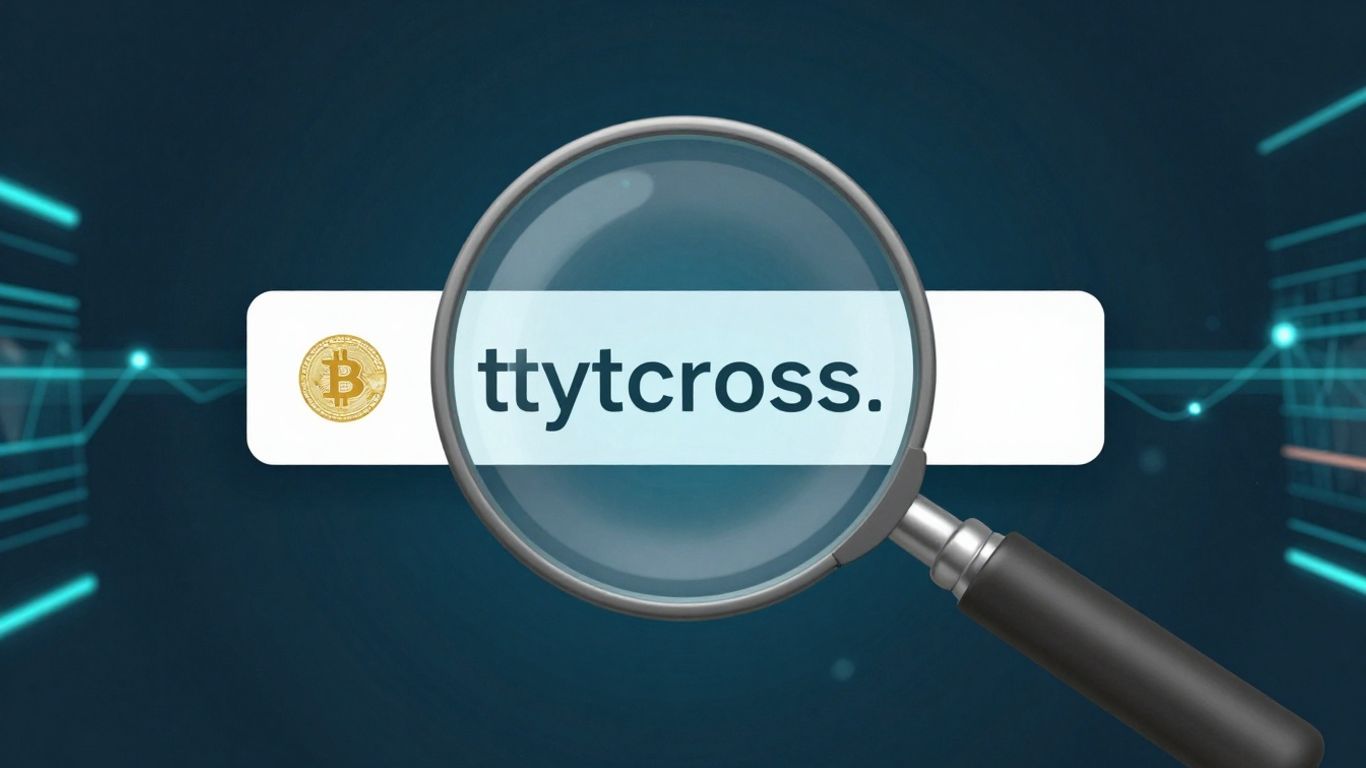[ newsletter ]
Stay ahead of Web3 threats—subscribe to our newsletter for the latest in blockchain security insights and updates.
Thank you! Your submission has been received!
Oops! Something went wrong. Please try again.
Beware of crypto wallet-finder bots on Telegram. Learn how they work, the risks, and safer ways to recover lost crypto.





Losing access to your crypto can be a real panic-inducer. You know the funds are there, but getting to them feels impossible. In this situation, you might hear about or even see ads for crypto wallet-finder bots, especially on platforms like Telegram. They promise a quick fix, a way to get your digital money back. But the truth is, these bots often come with big risks. This article is going to break down what these bots are, how they work, and most importantly, how to avoid falling into a trap when you're just trying to recover what's yours.
Losing access to your cryptocurrency can be a really stressful experience. You might remember having a wallet with some funds, but the seed phrase or password has just vanished from your memory. In these moments of panic, you might stumble upon something called a 'Crypto Wallet-Finder Bot,' often found on platforms like Telegram. These bots pop up claiming they can help you recover lost access, maybe by trying to guess your seed phrase or password. It sounds like a dream come true, right? But it's super important to know how these things actually work and what the real risks are.
These bots usually present themselves as automated services. They might say they can brute-force seed phrases, help with partially remembered phrases, or even recover passwords for encrypted wallet files. The process typically starts when you contact the bot. You'll explain your situation – maybe you lost your seed phrase or forgot your password. Then, the bot will likely ask for some information, like your wallet address or any part of the seed phrase you recall. Some bots even claim to analyze your situation to see if recovery is possible before asking for payment, which is often requested in crypto.
Finding these bots is usually as simple as searching within Telegram for terms like 'lost wallet recovery' or 'crypto finder bot.' You'll see a lot of them, but just because there are many doesn't mean they're trustworthy. It's like walking through a marketplace; not everything being sold is genuine. You need to be really careful about which ones you even consider interacting with. Remember, legitimate crypto trading bots automate trades based on strategies, not lost wallet recovery [c9d2].
When you interact with a bot, the steps usually go something like this:
It's important to understand that while some very basic recovery actions, like suggesting common typos in a seed phrase, are technically possible, the vast majority of these bots are designed to scam users. They prey on desperation, and the promise of easy recovery is often a trap.
Some tools out there are designed to bypass security on crypto wallets by finding vulnerabilities. While these might sound useful, they are often used by malicious actors to gain unauthorized access to digital assets. It's a good reminder to be extremely cautious about any software or bot that claims to 'find' or 'recover' lost wallets without proper, verifiable methods.
It's easy to get excited when you think you've found a way to recover lost crypto, especially if you're feeling desperate. Telegram bots that claim to find lost wallets pop up everywhere, promising quick fixes. But here's the thing: most of them are not what they seem. They prey on people who have lost access to their funds and are looking for any solution. The convenience these bots offer is often a trap designed to steal your information or your money.
When you're trying to get back into a lost wallet, you might feel like you have no other options. This is exactly the situation scammers count on. They set up these bots to look helpful, but their real goal is to take advantage of your situation. It's a sad reality that the space for recovering lost crypto is filled with fraudulent services.
These bots use a few common tricks to fool people:
Getting involved with a bad bot can lead to more than just losing the money you were trying to recover. You could end up losing all the crypto in your other wallets if your device gets infected. Plus, you might lose the money you paid to the scammer. It's a lose-lose situation that can be avoided with a bit of caution.
Always remember that legitimate recovery services will never ask for your private keys or your full seed phrase. If a service demands this information, it's a major red flag. Stick to official wallet support channels or well-known, trusted recovery specialists if you need help.

While the allure of quick fixes from bots is strong, especially when you're stressed about lost funds, it's important to know what's actually possible through legitimate channels. Not all hope is lost, but the path to recovery often requires patience and a more grounded approach.
When we talk about what's technically possible in crypto recovery, it's usually about fixing small errors or trying common solutions. Think about those times you might have slightly mistyped a word in your seed phrase or used a common password variation. Some specialized software can actually help with these specific issues. For instance, if you're missing a word or two from your recovery phrase, there are tools that can generate likely combinations based on the BIP39 standard wordlist. Similarly, if you encrypted your wallet file but can't recall the exact password, scripts can try common variations you might have used. These aren't magic bullets, but they address specific, common user errors.
For more complex situations, like dealing with corrupted wallet files or hardware failures, professional data recovery services can sometimes step in. These are specialists who have the tools and knowledge to try and retrieve data from damaged storage media. It's a bit like a digital forensics operation. They might be able to recover a wallet file that's otherwise inaccessible. However, this is usually a costly process and success isn't guaranteed. It's best to look for services with a proven track record and clear communication about their methods and fees. Some firms, like Xpress Hacker Recovery (XHR) and Puran Crypto Recovery (PCR), are mentioned as leading providers in this area for 2025.
Don't forget about the companies that actually provide the wallets you use. Most reputable wallet providers have customer support teams and extensive help sections on their websites. If you've lost access to your wallet, your first step should be to check their official documentation or contact their support. They can guide you through the official recovery procedures for their specific wallet, which often involve using your seed phrase or other recovery information through their secure interfaces. For example, Bitget Wallet offers detailed guides and community forums to help users troubleshoot access issues. Always stick to official channels when seeking help with your wallet.
Look, nobody wants to lose access to their crypto. It’s a terrible feeling, right? While those Telegram bots might seem like a quick fix, they're usually just a faster way to lose what little you have left. Instead of gambling with shady bots, let's talk about some actual ways to get your digital assets back or, better yet, avoid losing them in the first place.
Sometimes, the information you need is closer than you think. It might be buried in old notebooks, a forgotten digital file, or even just your memory. Start by trying to recall any variations of passwords you might have used. If you remember parts of your seed phrase, try cross-referencing them with the BIP39 word list. It’s a long shot, but it’s a lot safer than trusting a bot.
Reputable cryptocurrency wallets usually have official support channels and recovery tools. These are designed by the developers who understand the wallet's architecture best. Think of it like going to the manufacturer for help with a faulty appliance, not a random guy on the street. Many wallets offer detailed guides or have community forums where you can find help from other users or official support staff. Always prioritize official resources over third-party solutions.
If you're looking for a more managed way to handle your assets, especially if you're worried about losing access, using a well-established cryptocurrency exchange can be an option. Exchanges often have robust customer support and account recovery processes in place. While it means giving up some self-custody, for some users, the added layer of support and easier recovery options are worth it. Just make sure you pick an exchange known for its security and reliability.
The key takeaway here is that legitimate recovery methods focus on using information you already possess or official, trusted channels. They don't ask for upfront payments to perform a 'magic' recovery or request your private keys. If something sounds too good to be true, it almost certainly is.

When it comes to keeping your crypto safe, it's easy to get caught up in the excitement of potential gains, but we really need to focus on the basics. Think of it like locking your house – you wouldn't leave the door wide open, right? The same applies to your digital assets. Never share sensitive wallet information, period. This includes your seed phrase, private keys, or passwords. Genuine recovery processes, if they even exist for your situation, will never ask for these details. It’s the golden rule of crypto security.
It’s also smart to check what others are saying. Before you even think about interacting with any Telegram bot or service claiming to help find lost funds, do a quick search. Look for community feedback on Reddit or other crypto forums. If people are reporting scams or bad experiences, steer clear. You can also keep records of any interactions you have, like chat logs or transaction IDs. This can be super helpful if you ever need to report a scam to Telegram or even the authorities.
Here are a few more things to keep in mind:
The allure of quick recovery can be strong, especially when you're feeling desperate about lost funds. However, many services that promise easy solutions are actually designed to steal what little you have left. It’s a harsh reality, but vigilance is your best defense.
For actual recovery, if you're dealing with a lost wallet, your best bet is often to try and reconstruct access manually. This might involve digging through old notes or trying different combinations if you remember parts of your password. If that doesn't work, look into official wallet recovery tools provided by the wallet developers themselves. For instance, if you're using a wallet like Bitget Wallet, they often have support channels and guides to help you troubleshoot access issues. Remember, sticking to official channels is always the safest route. If you're storing assets on an exchange, make sure it's a reputable one like Bitget Exchange that has strong security measures in place.
Keeping your digital assets safe is a big deal, and honestly, it’s mostly up to you. It’s not like a bank where someone else handles your money. With crypto, you’re the bank. So, getting your wallet management right from the start is super important.
Losing access to your crypto wallet can feel like losing cash, but a good backup plan can save you. Think of your seed phrase, that string of words that unlocks your wallet, as the ultimate key. You absolutely must store this somewhere safe and offline. Many people use fireproof safes or metal plates designed to withstand damage. It’s also smart to have more than one backup, maybe one at home and another with a trusted family member or in a secure offsite location. This way, if something happens to one backup, you still have access through another. It’s about redundancy, making sure you don’t have a single point of failure.
Not all wallets are created equal. You’ve got software wallets that run on your computer or phone, and then there are hardware wallets, which are physical devices. Hardware wallets are generally considered more secure because they keep your private keys offline, away from internet threats. When picking a wallet, do a little digging. Look for wallets with good reviews, active development, and clear security features. For day-to-day spending, keeping only a small amount in a 'hot' wallet (connected to the internet) is a good idea. For larger amounts, a hardware wallet is the way to go to minimize your risk.
Your seed phrase is everything. If someone gets their hands on it, they have full control of your crypto. Never, ever share it with anyone, no matter how convincing they seem. That includes those Telegram bots we talked about earlier. Genuine support will never ask for your seed phrase. Keep it private, keep it safe, and treat it like the most sensitive piece of information you own. Storing it securely, perhaps on a durable medium and in a secure location, is non-negotiable for long-term crypto safety.
It’s easy to get caught up in the excitement of crypto, but a moment of carelessness with your private keys or seed phrase can lead to irreversible losses. Prioritize security in every step you take.
So, while the idea of a bot magically finding your lost crypto sounds great, it's usually not the case. Most of these tools on Telegram are actually scams trying to get your info. It's way safer to try and remember your own details or use official recovery methods from your wallet provider. If you do need help, look for real recovery services with good reviews, but never, ever give out your private keys or seed phrase. Keep your crypto secure by using trusted wallets and writing down your recovery info in a safe place. That's the best way to avoid losing your digital money in the first place.
Think of these bots like automated helpers on messaging apps, usually Telegram. They claim to help you find or get back into your lost crypto wallets. They might say they can guess forgotten passwords or fix missing parts of your secret phrase.
Most of the time, no. Many of these bots are actually scams. They trick people who are upset about losing their crypto into giving up important information, which they then use to steal more money. It's like a wolf in sheep's clothing.
Scammers use a few common tricks. They might ask you to click on a suspicious link that downloads bad software onto your device. Or, they'll ask for your wallet's secret information, promising to help but actually stealing your funds. Sometimes, they just take your money for a service they never provide.
Instead of risky bots, try to remember your password or look for written notes of your secret phrase. You can also check the official website or app of your wallet provider for help. Some professional data recovery services might be able to help, but always check if they are trustworthy first.
Never, ever share your secret phrase or private keys with anyone, especially not a bot or someone you don't know well. Real help will never ask for this sensitive information. It's like giving away the keys to your entire vault.
The best way is to be super careful. Write down your secret phrase and keep it in a very safe, secret place, maybe even in a couple of different spots. Use strong, unique passwords and consider using a hardware wallet for extra security. Always double-check any service or bot before you trust it with your digital money.


